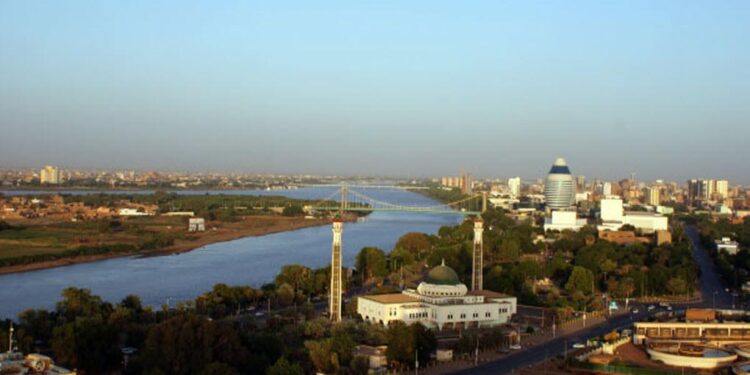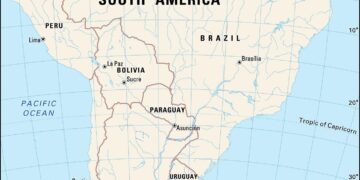Khartoum’s Changing Control: A Turning Point in Sudan’s Prolonged Conflict
The recent takeover of Khartoum marks a significant milestone in Sudan’s protracted civil war, underscoring the intricate and volatile nature of the ongoing conflict. This shift not only highlights the fierce competition among various factions but also signals a potential transformation in a struggle that has already resulted in thousands of deaths and forced millions to flee their homes. As different groups scramble for dominance amid worsening humanitarian conditions, the future stability of Sudan hangs precariously in the balance. This article explores the ramifications of Khartoum’s altered power structure, profiles key stakeholders, and examines what lies ahead for this embattled nation.
Complex Contest for Authority: The Fluid Power Landscape in Khartoum
The upheaval witnessed recently within Khartoum epitomizes Sudan’s enduring turmoil where control is fiercely contested by multiple actors. The city has become a focal point where military commanders, paramilitary units, and civilian coalitions continuously realign their alliances to consolidate influence. These shifting allegiances profoundly affect governance prospects while exacerbating hardships faced by ordinary citizens caught amid escalating violence.
Compounding these internal struggles are external forces seeking to capitalize on Sudan’s instability—further complicating efforts toward peace. International stakeholders remain divided on intervention strategies; some advocate sanctions targeting belligerents while others push for increased humanitarian assistance. Against this backdrop, three critical challenges persist:
- Access to Humanitarian Aid: Numerous areas remain isolated from essential relief operations due to security constraints.
- Maintaining Security: Persistent clashes undermine any attempts at restoring order or protecting civilians.
- Legitimacy of Governance: Competing claims over authority erode public confidence and hinder political progress.
The Humanitarian Fallout: How Leadership Transitions Impact Crisis Management
The recent leadership changes reverberate deeply across Sudan’s fragile humanitarian landscape—a crisis intensified by years of armed conflict and systemic instability. New authorities face immense pressure to rebuild trust with communities devastated by violence and neglect; such reconciliation is crucial for effective aid delivery and governance restoration.
A variety of factors will shape how these developments influence humanitarian outcomes moving forward:
- Policy Overhaul: Fresh leadership could introduce reforms facilitating greater NGO access into hard-to-reach zones currently starved of assistance.
- Diplomatic Engagements: The approach taken toward international organizations will likely dictate levels of foreign aid inflows vital for relief efforts.
- Evolving Security Environment: Changes within military factions may either stabilize certain regions or trigger new waves of displacement among vulnerable populations.
- Tackling Public Health Emergencies: Addressing outbreaks like cholera—exacerbated by poor sanitation amid conflict—is an urgent priority requiring coordinated response mechanisms.[1]
| Main Factor | Description & Potential Outcome |
|---|---|
| Aid Accessibility | Smoother distribution channels enabling timely support delivery |
| Diplomatic Relations | An increase or decrease in international funding depending on cooperation levels |
| Maneuvering Security Forces | Affecting population movements through stabilization or renewed hostilities |
| Epidemic Control Efforts | Pivotal reduction in disease spread improving overall health conditions |
Navigating Global Responses: Strategic Approaches Amidst Sudan’s Shifting Conflict Terrain
The fluid situation surrounding Khartoum demands an agile yet comprehensive response from global actors aiming to mitigate both political unrest and human suffering effectively. To address these intertwined challenges adequately, several strategic priorities must be pursued concurrently:
- Diplomatic Channels Enhancement : Facilitating open dialogue between rival factions can pave pathways toward ceasefire agreements essential for de-escalation .
- Coordinated Humanitarian Operations : Synchronizing aid delivery ensures resources reach those most affected without duplication or delay .
- Empowering Local Civil Society : Supporting grassroots organizations strengthens community resilience , advocacy ,and service provision .
- International Oversight Mechanisms : Deploying impartial observers helps monitor compliance with human rights norms , deterring abuses .
The global community must also consider imposing precise sanctions targeting individuals or groups perpetuating violence. Coordinated punitive measures can discourage further aggression while incentivizing negotiations towards peace.< /a >
< th >Entity< / th >< th >Role Proposal< / th >
< /thead >< td >United Nations< / td >< td >Mediator facilitating peace dialogues< / td > < td >African Union< / td >< td >Regional watchdog promoting stability across borders< / td > < td >European Union< / td >< td >Enforcer implementing targeted sanctions against violators< / td > < td >Non-Governmental Organizations (NGOs)< / td >< td >(Primary) providers delivering critical humanitarian services on ground locations n
nn
A Path Forward Amid Uncertainty: Reflections on Sudan’s Future Post-Khartoum Shift
nn
The transfer of control over Khartoum amidst ongoing chaos represents more than just a tactical victory—it reshapes the trajectory not only militarily but politically as well as socially within Sudan.nThis pivotal moment raises pressing questions about governance legitimacy,nstability prospects,nand how effectively humanitarian needs will be met going forward.nAs competing entities jostle for influence,the eyes worldwide remain fixed keenly upon this unfolding drama, recognizing that much hinges upon its resolution.nnThe urgency now lies with concerted diplomatic initiatives coupled with sustained commitment towards peacebuilding,nas millions endure hardship wrought from relentless warfare.nUltimately,nthe resilience demonstrated daily by ordinary Sudanese offers hope that amidst adversity,a foundation might emerge supporting lasting recovery,and renewed national unity.
nn
nn
- Empowering Local Civil Society : Supporting grassroots organizations strengthens community resilience , advocacy ,and service provision .













